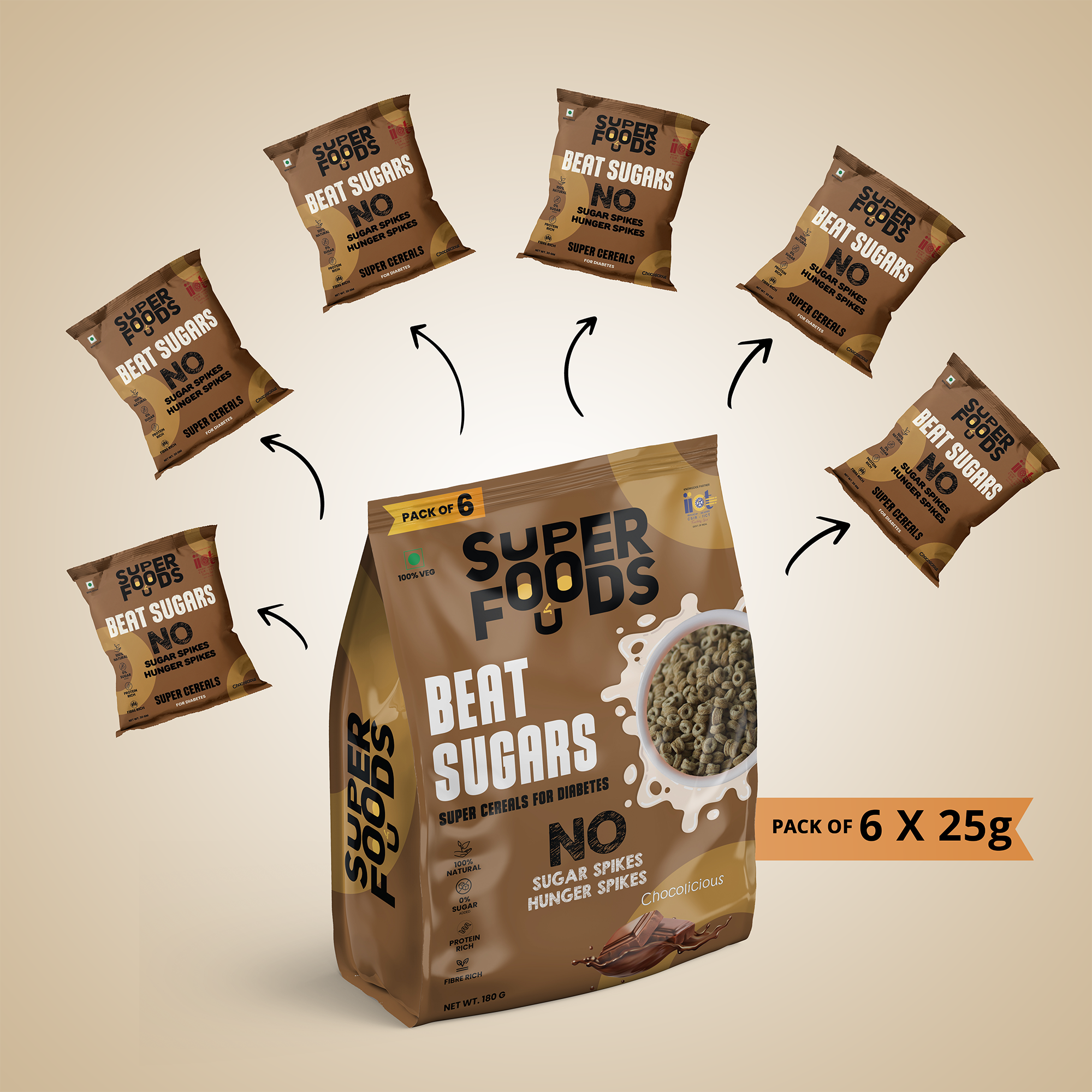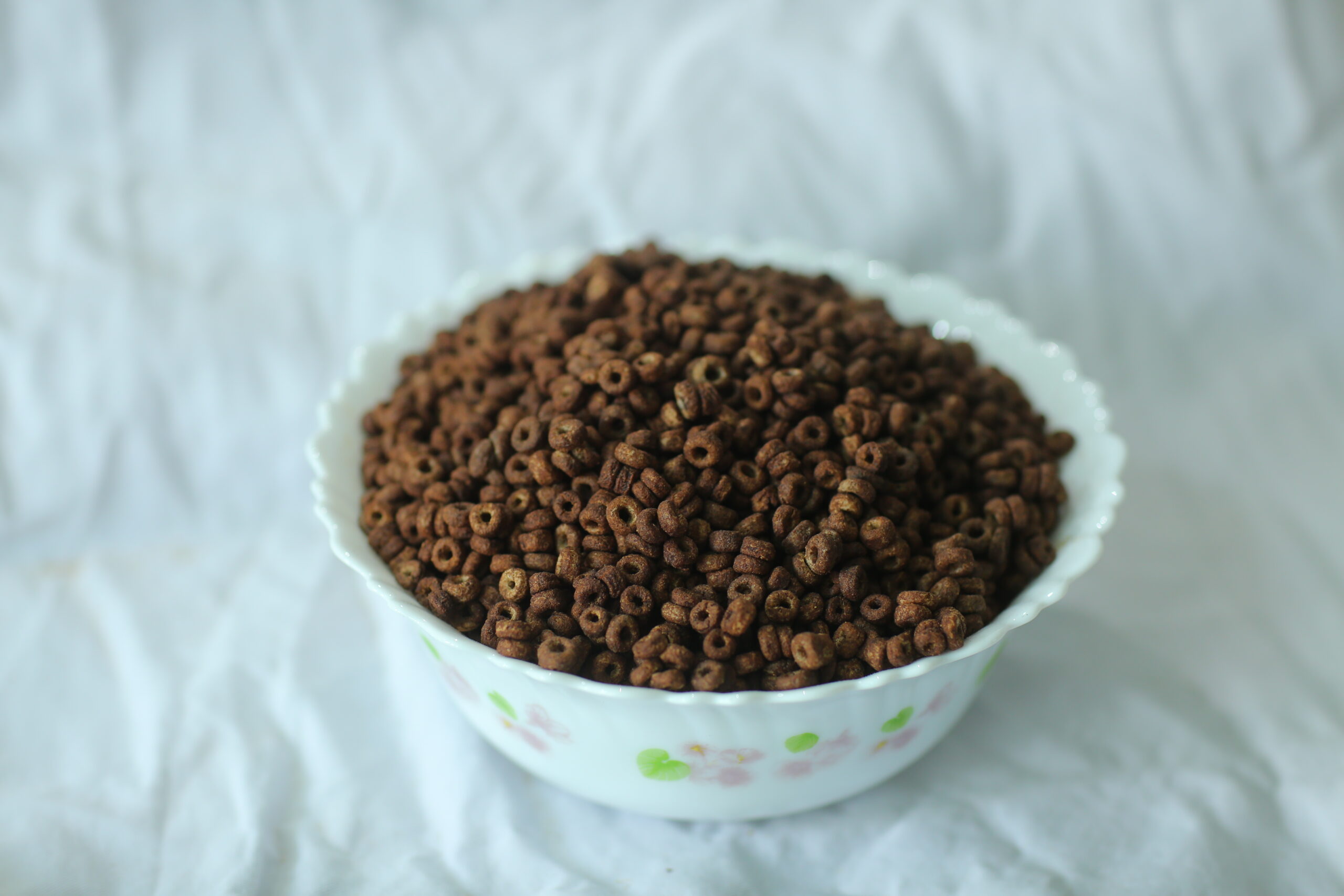The Link Between Obesity and Diabetes: How Superfoods Can Help
Obesity and diabetes are two intertwined health conditions that have reached epidemic proportions globally, with India facing a particularly significant challenge. At Superfoods4U, we believe in addressing these issues through natural, nutritious solutions. This comprehensive guide will explore the link between obesity and diabetes, and how superfoods can play a crucial role in prevention and management.
Understanding the Obesity-Diabetes Connection
Obesity is a major risk factor for Type 2 diabetes. Let’s delve into why:
- Insulin Resistance: Excess body fat, especially around the abdomen, can lead to insulin resistance, a key factor in Type 2 diabetes development.
- Inflammation: Obesity promotes chronic low-grade inflammation, which contributes to insulin resistance and beta-cell dysfunction.
- Metabolic Stress: Obesity puts additional stress on the body’s metabolic processes, affecting glucose regulation.
Research: A study by the Indian Council of Medical Research (ICMR) found that obesity increased the risk of Type 2 diabetes by 5-6 times in Indian adults.
International Perspective: The World Health Organization (WHO) recognizes obesity as a major modifiable risk factor for Type 2 diabetes.
WHO Obesity and Diabetes Fact Sheet
The Role of Superfoods in Obesity and Diabetes Management
Superfoods are nutrient-dense foods that offer maximum nutritional benefits for minimal calories. They can play a significant role in managing both obesity and diabetes. At Superfoods4U, we’ve carefully selected a range of superfoods for our products, each offering unique benefits for weight and blood sugar management. Let’s explore these ingredients:
1. Barley (Jau)
- Benefits: High in fiber, helps control blood sugar and promotes feelings of fullness
- How it helps: Beta-glucan in barley slows digestion and absorption of carbohydrates
Research: A study by the National Institute of Nutrition, India, found that barley consumption improved glycemic control and reduced BMI in Type 2 diabetes patients.
2. Finger Millet (Ragi)
- Benefits: Low glycemic index, high in fiber and essential minerals
- How it helps: Helps in slow release of glucose into bloodstream, aiding weight management
Indian Research: The Indian Institute of Millets Research has extensively studied ragi’s benefits for diabetics and its role in weight management.
3. Horse Gram (Kulthi)
- Benefits: High in protein and fiber, may aid in weight loss and blood sugar control
- How it helps: Promotes satiety and has a low glycemic index
Research: Studies at the Central Food Technological Research Institute, Mysore, have shown horse gram’s potential in diabetes management and weight control.
4. Mango (Aam)
- Benefits: Rich in fiber and antioxidants, may help in glucose regulation
- How it helps: Contains compounds that may mimic insulin action
International Research: A study published in the British Journal of Nutrition found that mango consumption improved blood glucose in obese individuals.
Mango Study in British Journal of Nutrition
5. Waterlily (Kamal Kakdi)
- Benefits: Low in calories, high in nutrients
- How it helps: Can be a nutritious, low-calorie addition to the diet, supporting weight management
6. Tendu Fruit (Indian Persimmon)
- Benefits: High in fiber and antioxidants, may help in blood sugar regulation
- How it helps: Contains tannins that may slow carbohydrate absorption
7. Fenugreek Seeds (Methi)
- Benefits: May improve insulin sensitivity and promote feelings of fullness
- How it helps: Rich in soluble fiber, which slows digestion and helps control appetite
International Research: A study published in the Journal of Medicinal Food found that fenugreek seeds can help lower blood glucose levels and body weight.
Fenugreek Study in Journal of Medicinal Food
8. Turmeric (Haldi)
- Benefits: May help reduce inflammation and improve insulin sensitivity
- How it helps: Contains curcumin, a compound with anti-inflammatory and antioxidant properties
Research: A study by the All India Institute of Medical Sciences (AIIMS) demonstrated turmeric’s potential in improving metabolic parameters in obese individuals with Type 2 diabetes.
Superfoods4U: Harnessing the Power of Superfoods
At Superfoods4U, we’ve combined these powerful superfoods into convenient, tasty snacks designed to support both weight management and blood sugar control.
Key Features of Our Products:
- Superfood-Rich Formulations: Our snacks incorporate a unique blend of barley, finger millet, horse gram, mango, waterlily, tendu fruit, fenugreek seeds, and turmeric.
- Low Glycemic Index: Our carefully crafted recipes ensure a low GI, helping to maintain stable blood sugar levels and promote satiety.
- Balanced Nutrition: Each snack provides a balance of complex carbohydrates, protein, and healthy fats to support overall health.
How Our Products Can Help:
- Provide nutrient-dense, portion-controlled snack options
- Offer convenient ways to incorporate multiple superfoods into your daily diet
- Help maintain stable blood sugar levels and promote feelings of fullness
- Support weight management efforts with low-calorie, high-nutrient options
Explore our superfood snack range
By incorporating these superfoods into your diet through our Superfoods4U snacks, you can take a proactive step towards managing both obesity and diabetes. Remember, these should be part of a balanced diet and healthy lifestyle for optimal benefits.
Incorporating Superfoods into Your Diet for Obesity and Diabetes Management
- Start your day with a barley and ragi porridge
- Use horse gram in soups and stews
- Enjoy fresh mango as a controlled portion snack
- Add waterlily to your salads for a nutrient boost
- Use fenugreek seeds in your cooking or as a tea
- Incorporate turmeric into your daily meals or as a supplement
- Include Superfoods4U snacks in your daily diet for convenient superfood intake
Additional Lifestyle Tips for Managing Obesity and Diabetes
- Regular Physical Activity: Aim for at least 150 minutes of moderate-intensity exercise per week.
- Mindful Eating: Practice portion control and eat slowly to recognize fullness cues.
- Adequate Sleep: Aim for 7-9 hours of quality sleep per night, as poor sleep can affect hunger hormones and insulin sensitivity.
- Stress Management: Practice stress-reduction techniques like meditation or yoga, as chronic stress can contribute to both obesity and diabetes.
- Regular Health Check-ups: Monitor your weight, blood sugar levels, and other health parameters regularly.
Conclusion
The link between obesity and diabetes is clear, but with the right approach, both conditions can be managed effectively. Incorporating superfoods into your diet, along with other lifestyle changes, can play a significant role in weight management and blood sugar control.
Remember, our Superfoods4U products are designed to complement a healthy lifestyle, offering convenient and tasty ways to incorporate beneficial ingredients into your diet. However, they should be part of a comprehensive approach to managing obesity and diabetes.
Always consult with your healthcare provider or a registered dietitian for personalized advice, especially if you have specific health concerns or are taking medications.
For more information on obesity, diabetes management, and healthy living tips, visit the Indian Council of Medical Research or the International Diabetes Federation, and check our blog regularly for updates and recipes




